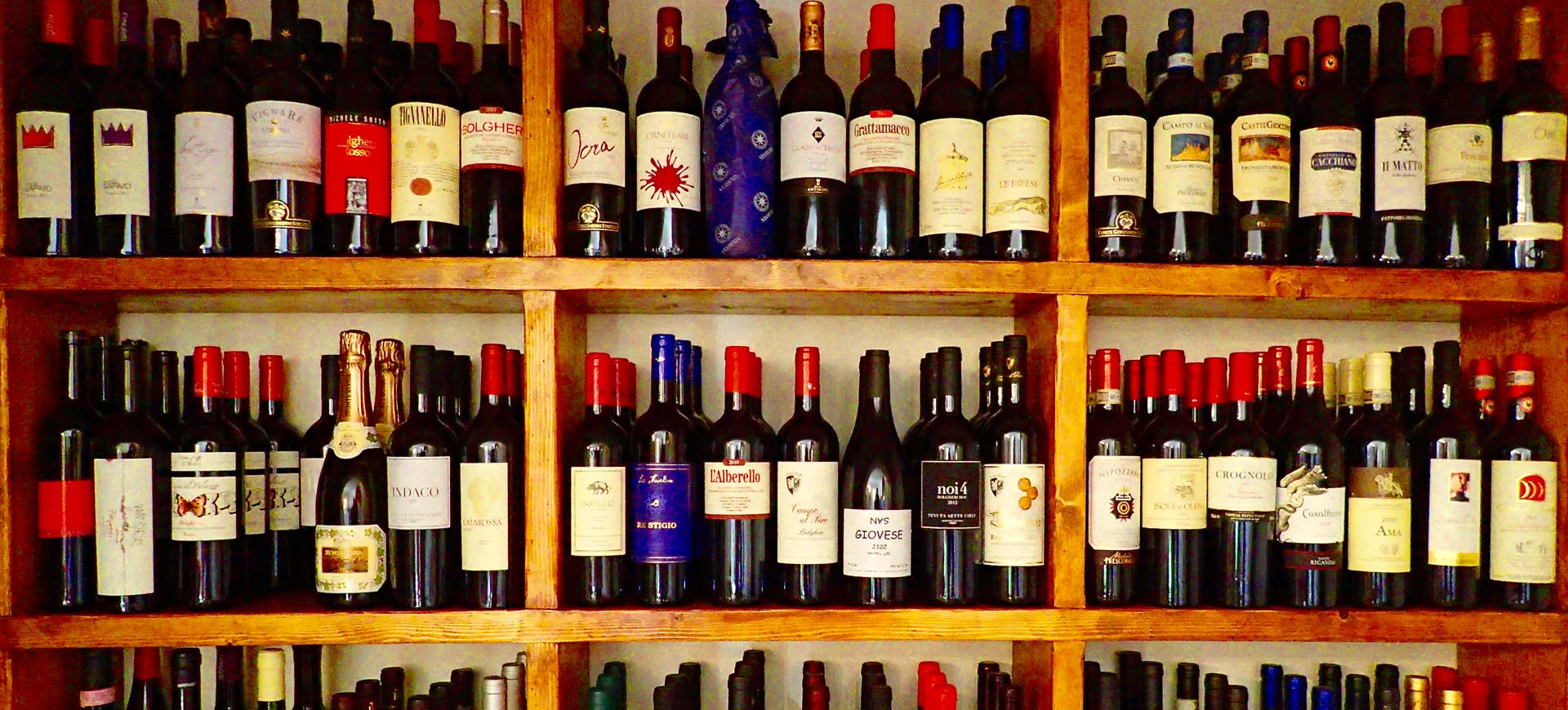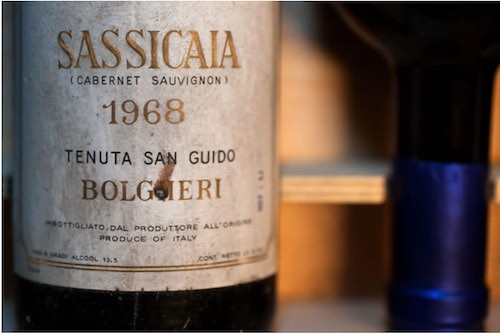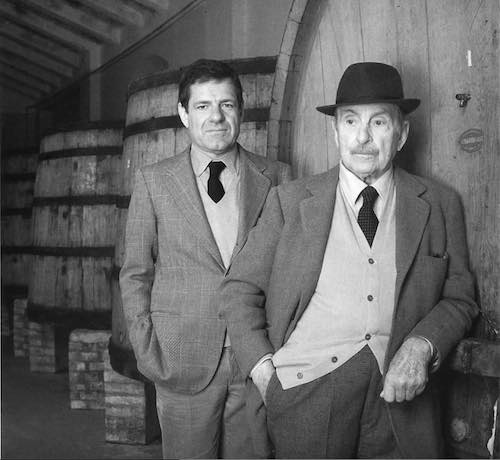Most wine lovers know Sassicaia today, but do you know its vineyards have very young roots?
Although wine has been part of Italian culture since ancient times, Bolgheri, a small hamlet located between the Mediterranean sea and rolling hills, was just the land of very ordinary wines. To make a long story short, the passion and the intuition of one man changed the destiny of this region in a few short decades: the Marquis Mario Incisa della Rocchetta, Countess Clarice della Gherardesca’s husband.
1940s: the beginning of the story
During the 1920s, while pursuing an agricultural degree in Pisa, the Marquis, born from a Piedmontese family and a passionate admirer of French grape varieties, had a dream to create a great wine from Tuscany. Inspired by the similarity in microclimate between Bolgheri and the Graves area in Bordeaux, France, he found the perfect spot on the Etruscan Coast.
In the 1940s, at an altitude of 393 meters on the slopes of Castiglioncello di Bolgheri, a family’s remote fortress, he planted the first Cabernet Sauvignon and Cabernet Franc from the Tenuta dei Duchi Salviati in Migliarino.
Castiglioncello di Bolgheri is still a private castle that still belongs to the Della Gherardesca family. Once a year, on the 16th of July, it’s open to the public in the occasion of Festa della Madonna del Carmine.
Sassicaia, the land of many stones
He christened his wine “Sassicaia”, meaning land of many stones (sasso in Italian is stone), after the rocky soil where the vines are planted on ‘la via Bolgherese’.
From 1948 to 1967, Sassicaia was only produced for family and private use. The Marquis soon discovered that his wine was greatly enhanced by aging. His friends and family encouraged him to continue his experiments and to perfect his winemaking style for this region.
With the advice of his brother-in-law, Marquis Niccolò Antinori, the husband of Countess Carlotta della Gherardesca, and the assistance of enologist Giacomo Tachis, he was able to further refine the quality of the wine. Tachis persuaded the Marquis Mario Incisa della Rocchetta to utilize 225-liter French oak “Bordeaux” barriques, which were previously unheard of in Italy, to age the wine.
If you want to know the whole story in the words of the Marquis’s niece, watch this video.
1968: Sassicaia Goes Public and Famous
The inaugural 1968 vintage of Sassicaia was met with the same acclaim as a Bordeaux Premier Cru.
In 1978, the renowned wine publication Decanter magazine hosted a blind tasting of 33 wines from 11 different countries in London, where a six-year-old Sassicaia was declared the winner, leading to its international recognition.
The wine’s global renown quickly led to immense success, casting a light on a new way to make wine. This was seen as an encouragement and a challenge for many winemakers who came to Bolgheri seizing the opportunity to cultivate vineyards in the previously unexplored hills of Bolgheri.
The founding fathers of the “Bolgheri” model
Fifty years later, these first pioneers are remembered as the founding fathers of the “Bolgheri” model: Piermario Meletti Cavallari (Grattamacco), Piero Antinori (Guado al Tasso), Lodovico Antinori (Ornellaia), and Michele Satta. Drawing inspiration from the producers of Sassicaia in terms of grape variety and barrel aging, they established the foundations for this approach.
Initially, Sassicaia and other Bolgheri wines were derogatorily referred to as “Table Wine” because they did not use the usual Tuscan grape varieties such as Sangiovese Colorino or Canaiolo.
1994: the birth of the DOC Bolgheri Sassicaia
Since 1994, Bolgheri wines have been given the Bolgheri DOC designation, whereas Sassicaia was officially recognized for its pioneering spirit in December 2013, with its own denomination as Bolgheri DOC Sassicaia.
Today, Sassicaia remains renowned as one of the foremost and esteemed wines in the world. Robert Parker famously rated the 1985 vintage of Sassicaia with an outstanding 100 points, citing it as “the most impressive wine I had encountered in my entire 37-year career”.
Wine Spectator magazine named the 2015 vintage of Sassicaia the best wine of 2018, while Robert Parker and Monica Larner accorded the 2016 vintage with a perfect 100 points.

Today, a Must Taste in Bolgheri
Tenuta San Guido
Tenuta San Guido, today run by the Marquis family, exclusively owns the Bolgheri Sassicaia DOC appellation, which spans an area of 2,500 hectares, with a hundred of those being planted with vines. Tenuta San Guido produces three wines, one of them being the renowned Sassicaia.
Sassicaia (Bolgheri Sassicaia DOC)
Bolgheri Sassicaia must include at least 80% Cabernet Sauvignon in its blend. The classic Sassicaia blend is usually composed of 85% Cabernet Sauvignon and 15% Cabernet Franc. It is aged for a minimum of two years, with 18 months of this period spent in 225-liter oak barrels.
Guidalberto (IGT)
The first vintage of Guidalberto was released in 2000 and it is not intended to replicate the style of Sassicaia. Rather, it seeks to showcase another expression of the Tenuta San Guido terroir. Guidalberto is composed of 60% Cabernet Sauvignon, the grape not used for Sassicaia, and 40% Merlot. This wine is aged for 15 months in barriques and it can be enjoyed even during its youth.
Le Difese (IGT)
The first vintage of Le Difese was in 2002, which is composed of 45% Sangiovese and 55% Cabernet. This blend of grapes, both native to Tuscany, creates a wine that bears the signature of the Cabernet grapes. The wine is aged for 15 months in barriques, giving it the same Sassicaia pedigree but at a fraction of the cost.
Where to taste Sassicaia wine?
Unfortunately, Tenuta San Guido is not open to the public and doesn’t provide guided visits to the winery and vineyards, nor do they sell their products directly. However, during a visit to the enchanted medieval village of Bolgheri, you’ll have the opportunity to enjoy Sassicaia and other prestigious wines in various enoteche (wine shops) where they are sold by the glass. It’s a little expensive but worth it.
If you’re in the Bolgheri region we suggest visiting Osteria Enoteca San Guido, a fine-dining restaurant and one of our favorites. Located just a short distance from Sassicaia wine cellar, at the bottom of the breathtaking Viale dei Cipressi, which has become famous in Italy due to the poet Giosué Carducci‘s renowned poem ‘Davanti San Guido‘. This restaurant, belonging to Tenuta San Guido, is one of the exceptional locations where we bring our guests during our Tuscany Food & Wine Vacations to taste the exquisite flavors of Tuscan cuisine paired with amazing wine.





